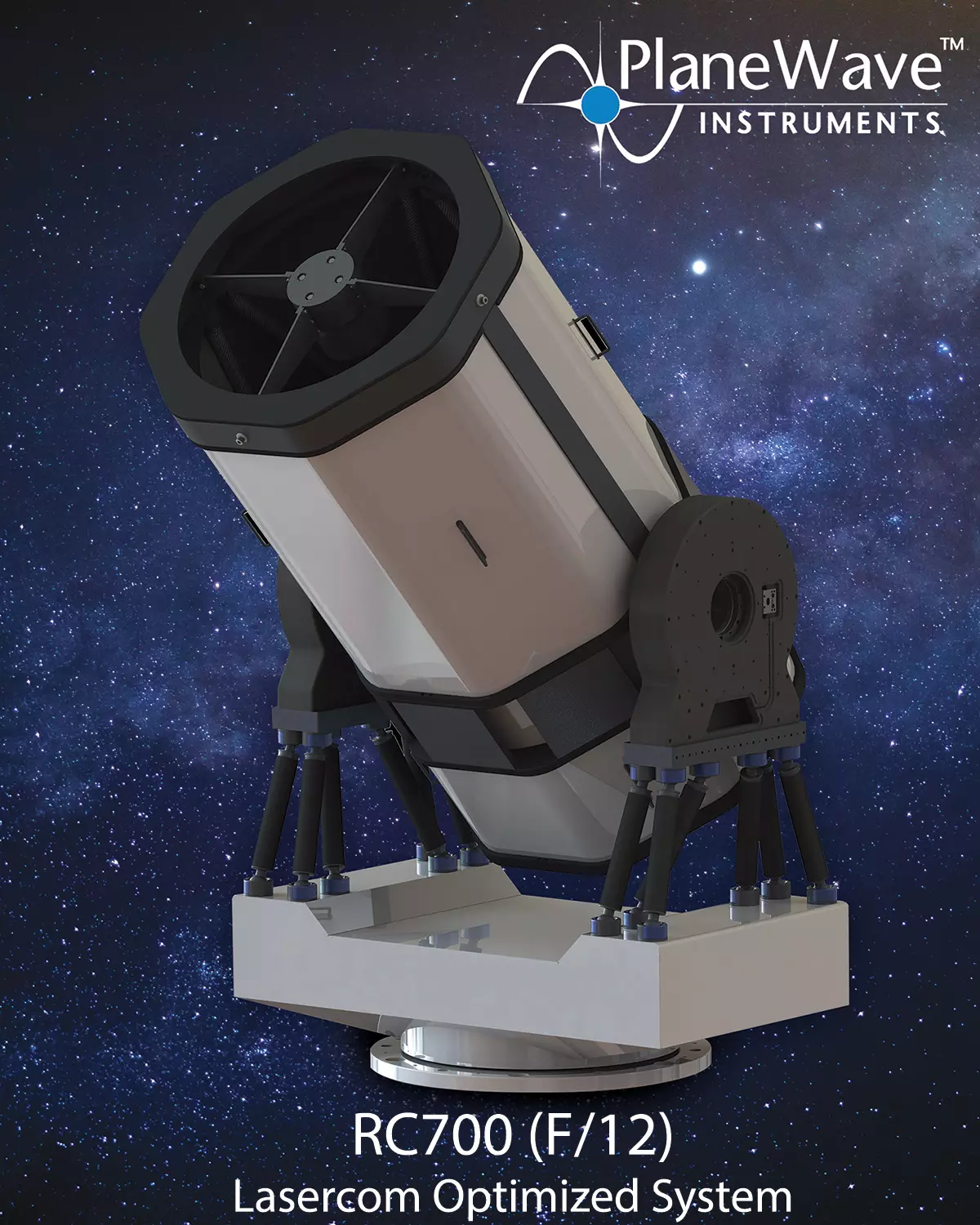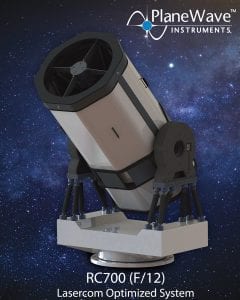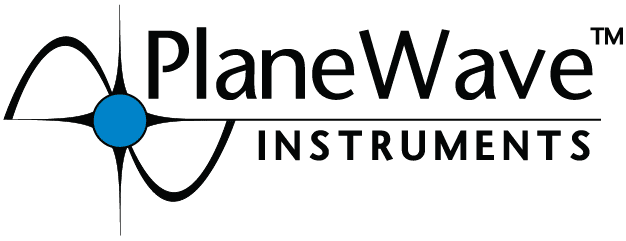Australian National University awards PlaneWave Instruments a contract to build an optical ground station with their RC700

ADRIAN, MI, JUNE 9TH, 2020 — PlaneWave Instruments will supply, deliver, install, provide support, and maintain a 700mm Ritchey-Chrétien Optical Ground Station (OGS) telescope at The Australian National University (ANU) . The OGS telescope shall be capable of tracking satellites in LEO, GEO and Deep Space with low tracking error for the purpose of Free-Space Optical Communication (FSOC).
“The collaboration between our entities is dynamic and it will enhance the development of advanced features which include adaptive optics, uplink lasers, quantum communication, RF/optical hybrids and other techniques,” said Francis Bennet Ph.D., Project Lead and Instrumentation Scientist in the ANU Institute for Space. The concept of operations will entail the use of the OGS and current radio-frequency methods in order to take advantage of hardware currently in orbit and those that are planned, including quantum key distribution modules.
“We look forward to the build and contribution towards the research efforts that will enable new communication capabilities for ANU and their partners,” added Ruben Nunez, FSOC Market Segment lead and European Managing Director of PlaneWave Instruments. The OGS telescope is expected to be installed during the first quarter of 2021 at the Mount Stromlo Observatory.
 PlaneWave’s 700mm Ritchey-Chrétien (RC700) telescope was designed to offer a central obscuration of less than 30% to improve both image contrast and the efficiency of optical fiber coupling and dual Nasmyth focus ports to setup or mount different optical benches. Matt Dieterich, Technical Services Manager of PlaneWave Instruments said, “PlaneWave’s heritage is founded on pushing the boundaries through advanced product development. We are very excited that our new RC700 has been selected and will play a mission-critical role for ANU.”
PlaneWave’s 700mm Ritchey-Chrétien (RC700) telescope was designed to offer a central obscuration of less than 30% to improve both image contrast and the efficiency of optical fiber coupling and dual Nasmyth focus ports to setup or mount different optical benches. Matt Dieterich, Technical Services Manager of PlaneWave Instruments said, “PlaneWave’s heritage is founded on pushing the boundaries through advanced product development. We are very excited that our new RC700 has been selected and will play a mission-critical role for ANU.”
About Francis Bennet, Ph.D.
Dr Francis Bennet’s field of expertise is Adaptive Optics and he is an Instrumentation Scientist in the ANU Research School of Astronomy & Astrophysics, and a Mission Specialiast for Laser Communications with ANU InSpace. Dr Bennet’s research focus is on leading a unified effort to capture
a key translation opportunity for which our university is uniquely positioned. Dr Bennet aims to deploy ANU-developed quantum technology augmented by advanced adaptive optics to demonstrate a space-based high-speed, global, inherently secure data network which can have a significant positive impact on global information security.
Dr Benned is assited by the ANU Translational Fellowship Program to accelerating work with key partners, building a focused, collaborative research program, and translate the results into the commercial and defence sectors.
About ANU Institute for Space
The Australian National University Institute for Space is an initiative that creates opportunities for and co-invests in research, innovation and collaboration to supercharge Australia’s space capability. ANU is home to world-class space infrastructure and world-leading space industry researchers. We align our work and investment to the Australian Space Agency’s (ASA) priority themes to drive national action: Positioning, navigation and timing, Earth observation, Communications technologies and services, Situation awareness and debris monitoring, Leapfrog R&D, Robotics and automation, Access to space, as well as three other critical areas: Defence, Home Affairs and Science.
For more information about ANU Institute for Space, visit inspace.anu.edu.au
About PlaneWave Instruments
Based in Adrian, Michigan, PlaneWave Instruments is a robotic telescope solution provider that focuses in the Astronomy, Space Domain Awareness, Free-Space Optical Communication, Quantum Key Distribution, and Defense market segments.
For more information about PlaneWave, visit www.planewave.com
